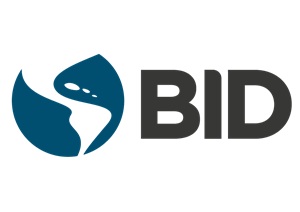 AcademiaBID | Cursos online | Amplía tus habilidades y conocimiento con todos nuestros recursos de aprendizaje
AcademiaBID | Cursos online | Amplía tus habilidades y conocimiento con todos nuestros recursos de aprendizaje
Reading
Top 15 Academic Editing & Proofreading Services
If you’re a professor, researcher, or grad student, finding the right editor can feel overwhelming. Deadlines are tight, and you don’t want errors holding your work back. Academic editing services make it easier to polish your papers and get them submission-ready.
Here are 15 of the best academic editing and proofreading services in 2025, with what you need to know about each.
1. Editor World
-
U.S.-based, native English editors (U.S., U.K., Canada).
-
You choose your own editor and can talk to them directly.
-
Prices: $78 (5-day, 3,000 words) → $159 (8-hour).
-
Discounts up to 20%. Recommended by Boston University.
2. Scribbr
-
Editors assigned by the company.
-
Prices: $121 (7 days, 3,000 words) → $217 (24 hours).
3. Enago
-
Specializes in scientific and thesis editing. Also offers plagiarism checks.
-
Prices: $174 (6 days) → $225 (1 day) for 3,000 words.
4. Scribendi
-
Canada-based, editors worldwide. Free sample edit offered.
-
Prices: $102 (7 days) → $183 (8 hours) for 3,000 words.
5. Oxford Editing
-
In business since 2007. Price depends on editing level.
-
Light editing for 3,000 words ≈ $105. Heavy editing up to $300.
6. Editage
-
Offers basic, advanced, premium, and thesis editing.
-
Premium editing for 3,000 words costs $270. Custom quotes for long manuscripts.
7. Wordy
-
U.K.-based, offers standard and express service.
-
Prices: $117 (standard) → $156 (express) for 3,000 words.
8. Wordvice
-
Founded in 2013, shares editor bios on its site.
-
Prices: $82 (7 days) → $346 (9 hours) for 3,000 words.
-
Often has discount codes.
9. Proofed
-
Based in South Africa, hires editors via Knowadays.
-
Prices: $105 (1 day) → $315 (urgent) for 3,000 words.
10. Taylor & Francis Editing
-
Offers editing, formatting, translation, and illustration.
-
Prices: $255 (4 days) → $588 (24 hours, premium plus) for 3,000 words.
11. WriteSmartly
-
Offices in London and San Francisco.
-
Offers plagiarism checks, paraphrasing, and content writing.
-
Prices: $90 (5 days) → $198 (4 hours) for 3,000 words.
12. ProofreadingPal
-
Based in Iowa, USA. Each document reviewed by 2 editors.
-
Must share email for a quote. Pricing not public.
13. PaperTrue
-
Offices in India, USA, Singapore, and U.K.
-
Services include formatting, referencing, and optional plagiarism check.
-
Prices: $88 (3 days) → $160 (12 hours) for 3,000 words.
14. Cambridge Proofreading
-
Started in England, now U.S.-based. Option for 2 editors.
-
Prices: $78 (72 hours) → $102 (12 hours) for 3,000 words.
15. EssayEdge
-
Focuses on admissions essays and academic documents.
-
Prices: $231 for 3,000 words, 48-hour turnaround.
-
Includes editing plus critique.
The right service depends on your budget, deadline, and how much feedback you want. Editor World and Cambridge are affordable for longer deadlines. Scribbr and Enago are pricier but well-suited for academic publishing. EssayEdge is best if you’re applying to schools and need in-depth guidance.

